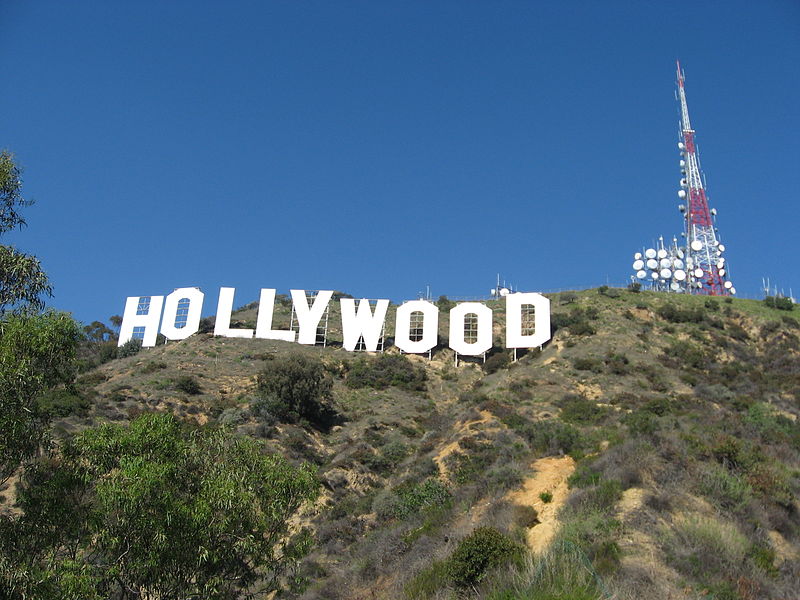- 14 3402-5578
- Rua Hygino Muzy Filho, 737, MARÍLIA - SP
- contato@latinoobservatory.org
 Wikimedia Commons
Wikimedia Commons
According to a USC's Annenberg Inclusion Initiative survey published in September, that sought to examine the prevalence and representation of Hispanics/Latinos in films, “in 2019, 35 movies did not feature a single Hispanic/Latino speaking character across the plot, which is consistent with over-time trends. [...] “The invisibility of Hispanic/Latinos grows even more dire when considering women: 59 films, or more than half of the top movies of 2019, didn’t have one Hispanic/Latino girl or woman as a speaking or named character. Across 13 years, a total of 856 films completely erased girls/women from the Hispanic/Latino community”.
In addition, fewer than two percent of leading movie roles go to Latino actresses, but those who do make it also multitask as directors, producers and activists.
Rosie Perez, a Puerto Rican actress, made a hit in 1989 when Spike Lee escalated her to the opening of Do the Right Thing. In 1992, she starred in the film "White Men Can't Jump", and "Fearless" in 1993, for which she received an Oscar nomination. Today, she is on four successful American TV shows.
“As an activist, Perez protested U.S. weapons training in Puerto Rico and she was on President Obama's advisory council on AIDS and HIV. Perez co-hosts the Latino affinity group for the Academy of Motion Picture Arts and Sciences. ‘We're trying to move the needle as to inclusion in front and behind the scenes of Hollywood’, she says”, according toNPR.
For years, Eva Longoria Bastón and America Ferrera have been crusading for more Latino representation in Hollywood.
“The Texan-Mexican American Longoria had her great opportunity in 2001 in the soap opera The Young and the Restless and became known for her role in the show Desperate Housewives. She produced Devious Maids, directed Jane the Virgin, was the producer and director of a telenovela and executive producer of Gordita Chronicles. [...] Longoria recently finished the production of Flamin' Hot, her first long film as director. She built her portfolio for years to 'reach a point in which she didn't need permission to do things', according to the same publication.
“I don't think there are evil studios and networks plotting - let’s not hire women and let's not hire Latinos”, Longoria told NPR. "I think they just unconsciously hire who looks like them, the stories that feel most familiar to them. And so, it’s about changing those rooms. We are becoming the creators”.
America Ferrera starred in the TV show “Ugly Betty” and became the first Latina to win an Emmy as a leading actress in a comedy. She was born in Los Angeles to Honduran parents and made her debut as an actress in the 2002 film “Real Women Have Curves”. Recently, she made her directorial debut with the Netflix film “I Am Not Your Perfect Mexican Daughter”.
Ferrera told NPR she sees a disturbing trend with many Latino-led shows and films. “When budgets shrink, when companies are having a difficult time, our projects are the first to go. We’re seen as the biggest risk. We’re seen as the biggest unknown factor. We're treated as, you know, the pet project, the pro bono work”.
The activism by these Latinas has gone beyond Hollywood. Ferrera once gave a TED Talk about empowerment. Longoria opened the 2020 Democratic National Convention. Along with Rosario Dawson, Zoe Saldana and Gina Rodriguez, they've rallied Latinas to vote in local and national elections.
“It’s not surprising in a cultural landscape where you don't see yourself reflected”, Said America Ferrera, noting that one of the biggest political barriers for Latinas has been the lack of confidence.
According to NPR, Longoria and Haubegger helped
start a movement called Poderistas (@poderistas). In October, a group of
poderistas was at the White House meeting with the First Lady and all the
Latina staffers. The Poderistas have social media platforms devoted to
empowerment.











